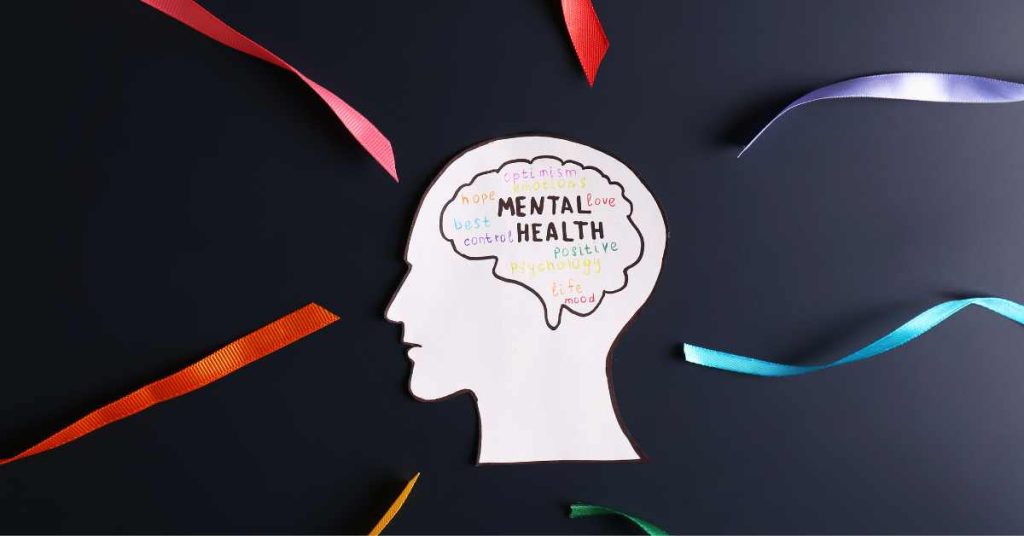Protecting Your Child’s Mental Health: How to Navigate the Impact of Social Media on Adolescents

Social media has become an integral part of daily life for adolescents, shaping how they communicate, express themselves, and engage with the world. While these platforms offer opportunities for connection and self-expression, they also carry potential risks for poor mental health. Understanding how social media influences adolescents is essential for parents, educators, and mental health professionals as they seek to guide and support young people in navigating the digital world. With guidance and boundaries, teens can learn to navigate the digital world in a healthy, balanced way.
The Mental Health Risks of Social Media – Online Psychology & Mental Health Care Service Blog Information
Adolescents are particularly vulnerable to the psychological pressures that come with consistent social media use, and the most common challenges are comparison. Social media platforms are flooded with curated images and videos of idealized lifestyles, beauty standards, and achievements. These posts are often edited or filtered, creating unrealistic images of reality. When teens compare their everyday lives to these “perfect” moments, they may begin to feel insecure with themselves. This comparison can contribute to a negative self-image, body dissatisfaction, and feelings of not being “good enough,”. Another common issue is fear of missing out (FOMO). Adolescents who see their peers posting about events, parties, or hangouts they weren’t included in may lead them to feel left out. Even if the exclusion is unintentional, it can still lead to loneliness, anxiety, and social insecurity. Cyberbullying is another significant concern when using any social media platform. Unlike traditional bullying, which usually occurs in person and during specific times (like at school), cyberbullying can happen at any hour and reach teens in their own homes. Online harassment may include mean comments, spreading rumors, exclusion from group chats, or even sharing embarrassing images or videos. These actions often take place out of sight of adults, teens may suffer in silence. The emotional toll of cyberbullying can be severe, leading to increased anxiety, depression, and even suicidal thoughts in some cases. Together, these issues highlight the ways in which social media can negatively impact adolescent mental health. We are at MentalService wanting to discuss and blog about online mental health care services and psychology information.
Establishing Healthy Digital Boundaries at Home
Parents and guardians play a crucial role in helping adolescents create a healthy relationship with social media. Setting age-appropriate screen time limits, encouraging offline activities, and having open conversations about what they’re viewing online can build resilience. MentalService.com offers digital parenting tips and mental service help online to support families in creating boundaries that reduce emotional distress while promoting healthy digital habits. The goal isn’t to eliminate social media, but to use it mindfully and in balance with real-life connections.
The Role of Mental Health Education in Schools
Schools can be powerful allies in promoting mental health awareness related to social media use. By incorporating digital literacy and emotional regulation lessons into the curriculum, educators can teach students how to critically evaluate what they see online. Programs that focus on kindness, self-worth, and cyberbullying prevention can also protect vulnerable students. MentalService.com provides educational resources and virtual counseling options for schools and teens who need mental service help online in real time.
How to Recognize When a Teen Needs Support
It’s vital for parents and caregivers to recognize warning signs that a teen may be struggling due to social media. Sudden mood changes, withdrawal from social interaction, disrupted sleep, or loss of interest in hobbies may signal deeper emotional issues. If these signs persist, it’s time to seek professional guidance. Through MentalService.com’s mental health chat tools and therapist directory, families can quickly connect with mental service help online to get the support their teen needs.
Empowering Teens Through Positive Social Media Use
Instead of only focusing on risks, it’s also important to help teens harness social media in empowering ways. Encouraging them to follow uplifting, educational, or creative accounts can shift their experience online. MentalService.com promotes mental wellness content and offers teen-focused tools that support self-expression, mindfulness, and self-care—all while reinforcing that their value isn’t measured by likes or followers. Our mission is to provide mental service help online that meets teens where they are—digitally and emotionally.
Using Online Mental Services for Long-Term Support
Access to mental health support shouldn’t be limited by geography or stigma. With virtual platforms like MentalService.com, teens and their families can find mental service help online from licensed professionals or AI-guided tools whenever they need it. Whether dealing with the aftermath of cyberbullying or learning to manage digital anxiety, ongoing support can make a lasting difference. Our platform is designed to provide safe, accessible care tailored to the digital age.
While social media can offer moments of connection and inspiration, the emotional risks it poses—if left unsuperivied—can be profound and long lasting into adulthood. While social media can create opportunities for connection, creativity, and inspiration, its emotional risks—especially when left unsupervised—can deeply impact adolescent mental health and carry long-term consequences into adulthood. Constant comparison, cyberbullying, and fear of missing out can contribute to anxiety, depression, and low self-esteem. That’s why platforms like MentalService.com offer mental service help online to guide families and teens in building healthy digital habits and accessing professional support when needed.
Here are some things to consider:
- Set Screen Time Limits:
Establishing boundaries around screen time is one of the most effective ways to protect adolescents’ mental health. It is important to encourage healthy boundaries by limiting the amount of time spent on social media each day. Apps like Instagram and TikTok can be addictive, setting time limits helps prevent overuse, which can lead to stress, anxiety, and sleep disruption.
Why it matters: Excessive screen time is linked to increased anxiety, sleep problems, and poor academic performance. When teens take breaks from social media, they have more time to focus on in-person interactions, hobbies, physical activity, and rest—all of which are essential for mental well-being.
- Foster Open Communication:
Create a safe space where adolescents feel comfortable talking about their online experiences. Encourage them to discuss any negative feelings, cyberbullying experiences, or pressures they face on social media. Let them know it’s okay to talk about both the good and the bad. Avoid judgment or overreacting, which can shut down future conversations. Keeping communication open helps address potential mental health issues early on.
Why it matters: Teens who feel they can talk openly with trusted adults are more likely to report negative experiences, seek help when needed, and develop better coping skills for managing online stress.
- Create Social Media-Free Zones:
Establish areas and times when social media is off-limits, such as during family meals or in their bedroom at night. Designating these spaces helps adolescents form healthy habits and gives them a break from the pressures of online interaction.
Why it matters: Poor sleep is a major contributor to anxiety, depression, and irritability in teens. Social media-free zones can promote better sleep hygiene and give the brain a chance to rest.
- Follow Positive Accounts:
Not all content on social media is harmful. Encourage adolescents to follow accounts that promote positivity, self-care, body diversity, and mental health awareness. By creating a more positive social media experience, they can be exposed to content that supports their emotional health and promotes a healthy self-image.
Why it matters: What teens see on social media deeply influences their self-image and worldview. A positive, uplifting feed can boost confidence, inspire creativity, and reinforce values.
- Encourage Offline Socializing:
While social media helps with staying connected, face-to-face interactions are equally important for developing strong, real-world relationships. Encourage adolescents to spend time with friends and family in person, whether it’s through outdoor activities, volunteering, or other shared experiences.
Why it matters: Strong personal relationships are one of the best protective factors against anxiety and depression. They give teens a safe space to be themselves and develop confidence outside of the digital realm.
When To Seek Help – Local Mental Health Care Services Information Online Chatting
Even with healthy habits in place, some adolescents may still struggle with the emotional toll of social media. Regularly check in with adolescents about how they’re feeling both online and offline. Keep an eye out for warning signs such as: Withdrawal from family and friends, mood swings or irritability, persistent sadness or hopelessness, trouble sleeping or changes in appetite. If your child expresses distress about their online experiences or shows signs of declining mental health, don’t hesitate to seek professional help at Mentalservice. A licensed therapist can provide guidance, coping tools, and a safe space to talk about their feelings.
At MentalService.com, we’re committed to supporting families through life’s most difficult transitions. We offer access to licensed psychologists, virtual therapy sessions, and mental wellness resources designed specifically for children and young adults. We at Mental Service are looking to chat about mental health care services online. Our mission is to make mental health care accessible, compassionate, and tailored to the unique needs of each child—right from the comfort of your home.



